Universal Health Coverage: What Tech Founders in Africa Need to Know
Discover how African tech founders are driving Universal Health Coverage (UHC) through innovation, digital solutions, and grassroots impact. This engaging guide breaks down UHC, shares real-life African case studies, offers startup advice, and connects you to funding and policy resources. Laugh, learn, and lead the change in Africa’s health future.

“He who is well fed does not understand the hunger of the hungry.” – African Proverb
Universal Health Coverage (UHC) is one of those big global goals that sounds noble (and it is!), but when you're deep in the trenches coding an AI chatbot for rural clinics or building a medicine delivery app in Nairobi, it might seem… distant. But here's the truth: UHC is your business. And if you’re a tech founder in Africa’s digital health space, you need to sit up, sip that Ethiopian coffee, and pay attention. Because Universal Health Coverage isn’t just a WHO buzzword – it’s the why behind your what.
🌍 What is Universal Health Coverage (UHC), Anyway?
UHC means that everyone—yes, your jamaa in Turkana and that busy mama in downtown Lagos—can get quality health services without suffering financial hardship (World Health Organization [WHO], 2023).
According to the WHO:
“UHC includes the full spectrum of essential, quality health services, from health promotion to prevention, treatment, rehabilitation, and palliative care” (WHO, 2023).
🔗 https://www.who.int/health-topics/universal-health-coverage
In simpler terms: It’s healthcare for all, not just the rich, the urban, or the insured.
🤖 Why Should Tech Founders Care?
If you’re in digital health, UHC isn’t just policy—it’s your market. Here’s why:
1. Big Need = Big Opportunity
Africa has over 1.4 billion people. Many still live miles away from the nearest clinic or doctor. If your app can deliver health advice via SMS or help people order meds via WhatsApp—you’re part of the UHC movement.
Take mPharma, the Ghanaian startup that uses tech to manage prescription drug inventory and make meds more affordable. Their work has helped reduce drug stockouts across Africa—making essential meds more accessible (MPharma, 2022).
🔗 https://mpharma.com
2. Investors & Donors Love It
Startups aligned with SDGs (Sustainable Development Goals) and health equity are a magnet for impact investors. Think of it like a health-focused Tinder—donors swipe right on social impact.
For example, Nairobi-based Ilara Health, which brings diagnostic tools to peri-urban clinics, received funding from the Bill & Melinda Gates Foundation and Grand Challenges Canada (Ilara Health, 2022).
🔗 https://ilarahealth.com
📱 Scenario: How a Simple App Can Drive UHC
Imagine this:
You’re building a mobile platform that connects community health workers (CHWs) to patients in Taita Taveta County. Your app:
-
Sends immunization reminders
-
Helps CHWs track antenatal visits
-
Connects patients to referral centers
Guess what? You're addressing preventive care, continuity of care, and access barriers—all pillars of UHC!
As the elders say: “A man who uses force is afraid of reasoning.” The same applies in health tech—reason and research always beat brute force coding.
💡 Tech Tools That UHC Needs
Here's your UHC tech checklist:
| Area | Tech Opportunity |
|---|---|
| Primary Care Access | Telemedicine, e-clinics |
| Health Financing | Mobile insurance, pay-as-you-go |
| Health Information Systems | Electronic Medical Records (EMRs), data dashboards |
| Supply Chains | Inventory tracking, digital procurement |
| Health Worker Support | mLearning, decision support tools |
“You cannot climb a tree from the top.” – African Proverb
Start small, validate, and scale. That’s how UHC-friendly solutions grow.
👩🏿⚕️ Case Study: Rwanda’s Community Health Worker Model + Tech
Rwanda has more than 45,000 CHWs serving 15,000 villages. In partnership with Babylon Health, Rwanda launched “Babyl”—a digital platform that lets users consult doctors by phone.
In its first year, Babyl registered over 2 million users—nearly 30% of the population (Babyl Rwanda, 2021).
🔗 https://www.babyl.rw
Now that’s UHC in action. Pairing grassroots health systems with digital innovation.
🔍 Avoid These “UHC Pitfalls” as a Founder
-
Designing for Urban Elites Only
If your app needs a smartphone and 4G, you’re excluding the majority.
Remember: “A child who is not embraced by the village will burn it down to feel its warmth.” -
Ignoring Policy
Health is highly regulated. Partner with Ministries of Health, understand NHIF or national schemes, and ensure your platform aligns with local UHC roadmaps. -
Forgetting the Human Touch
Health isn’t just data. It’s emotion, trust, and tradition. Your app should empower—not replace—frontline workers.
✊🏿 The Founder’s Manifesto for UHC
If you're building a health tech startup in Africa, here’s your to-do list:
✅ Make your solution affordable, accessible, and language-inclusive
✅ Partner with governments, NGOs, and public health programs
✅ Use local data to guide your design
✅ Test your platform in rural + low-resource settings
✅ Prioritize women, children, the elderly, and underserved
Because as we say in Swahili: “Maji hufuata mkondo.” (Water follows the path of least resistance.) Design health tech that flows into people’s lives—not tech that forces them to change everything.
📚 Resources to Get You Started
-
World Health Organization (2023). Universal Health Coverage. https://www.who.int/health-topics/universal-health-coverage
-
World Bank (2022). Universal Health Coverage in Africa: A Framework for Action. https://documents.worldbank.org/en/publication/documents-reports/documentdetail/099905206302231504/idu0522e98cf040e6096f30c167dbbb9ac8fd3e7
-
Ilara Health: https://ilarahealth.com
-
MPharma: https://mpharma.com
-
Babyl Rwanda: https://www.babyl.rw
👋 Final Thoughts
Universal Health Coverage is not just about hospitals or policies. It’s about dignity, equity, and innovation. If you’re a tech founder in Africa, you’re not just a coder or CEO—you’re a changemaker, a modern-day mganga wa kidigitali (digital healer).
So, keep building. But build with people, not just for them. Build for the dusty villages, the border towns, the crowded estates, the unheard voices.
Because UHC is the future—and the future needs you.
What's Your Reaction?
 Like
0
Like
0
 Dislike
0
Dislike
0
 Love
0
Love
0
 Funny
0
Funny
0
 Angry
0
Angry
0
 Sad
0
Sad
0
 Wow
0
Wow
0














































































